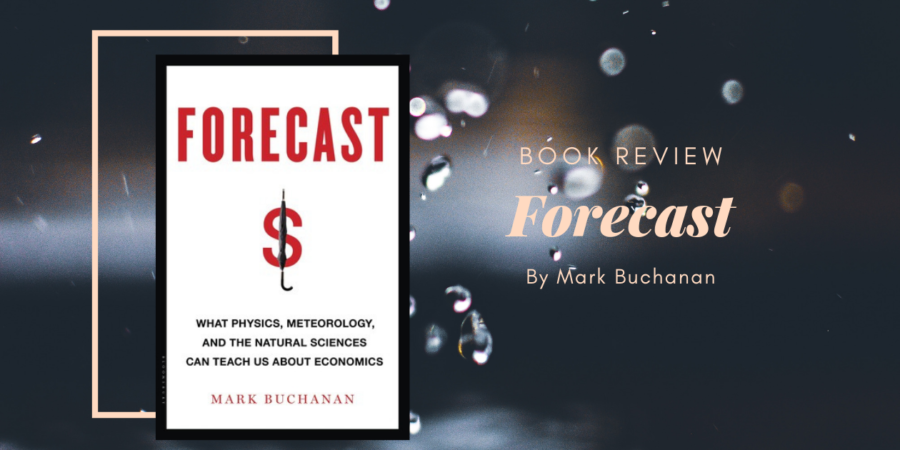I borrowed this on a whim but it turned out to be surprisingly technical and something that I wished I had in university. Subtitled: what physics, meteorology, and the natural sciences can teach us about economics, Forecast is about the weaknesses of current modern economic thinking and how we might be able to overcome them by taking a leaf from other disciplines.
The book starts by arguing that we should be focusing on disequilibrium thinking, not equilibrium thinking. And to be honest, that first chapter was not easy to understand. Luckily, the second and third chapters are a recap of the history of modern economic thought, which set the stage for the rest of the book. From the fourth chapter onwards, Buchanan looks at economic events and crashes in the stock market to persuasively argue that there is no stable equilibrium and that markets will not naturally tend to efficiency. Instead, the book argues the traditional thought may not always hold true, and that markets are naturally in a state of disequilibrium and our drive towards efficiency (for example, through faster and faster trading) will only make it easier to start a stock market crash. As the book summarises it:
“The ideas of equilibrium and self-regulating markets started out as an inspiring vision of what decentralised market activity can achieve. Markets can indeed do wonderful things, but the narrow-minded interpretation of this idea has over time become a principal weapon in the fight against good thinking.”
Unfortunately, because this is a call for a new approach to economics, the book doesn’t have that much about the applications of methods from other fields into the field of economics. However, several interesting parallels of things like weather and the stock market makes the borrowing of methods from other disciplines seem like a good idea, and I hope that someone is already doing research into this (the book came out in 2013 so hopefully research has already been published).
While the ideas in the book are interesting and some foundation is provided, I think this would be pretty inaccessible to someone who’s not already familiar with economics. In fact, even though I was an economics major, I had problems following the book at times (although that may say more about me as a student than on the book). Then again, this book diverges so much from what is traditionally thought in schools that having an economics background may even be a hindrance – perhaps physics and meteorology students would understand this better?
Overall, this was an interesting, though occasionally difficult, book to read. If you’re interested in how the market moves, or in new directions the field of economics could possibly take (or should I write “is taking”?), this is something that I think you’d be interested in.
